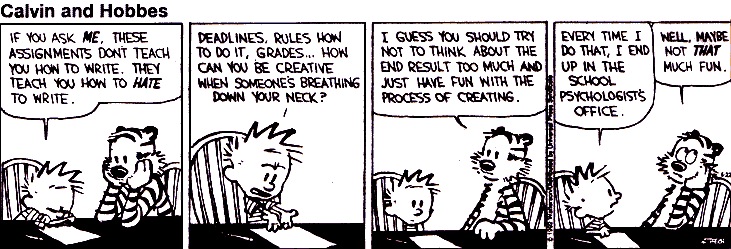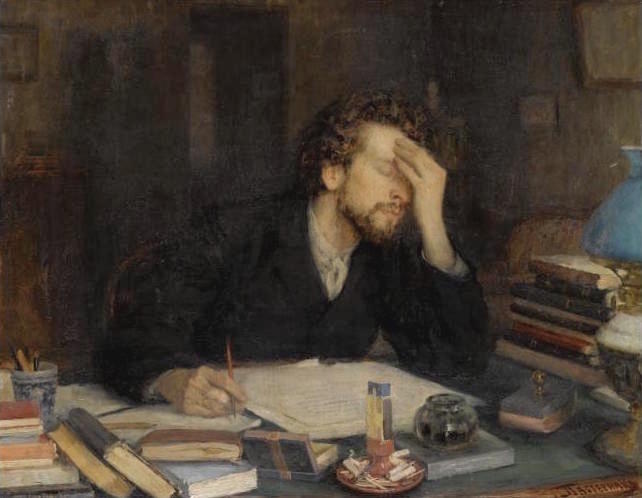Do you suffer from writer’s block? I’ve been thinking of taking a break because writing is coming tougher to me nowadays for various reasons. A friend mentioned maybe it was a writer’s block. Since I’ve never fallen for the whole idea of a wall blocking your creative side, I thought I will write about it. And just then serendipitously I came across my wonderful author friend Andaleeb Wajid’s rather helpful blog on the same subject. Andaleeb is a superstar author who keeps churning out one fantastic book after another, while taking care of a vast family, doing workshops on creative writing and generally being a fantastic person. So if she’s talking about this block-monster-thingy, believe me she knows her stuff. And this is what she suggests you do.
What’s this Writer’s Block?
If there’s one thing every other writer will tell you or post/tweet is that they’re facing a writer’s block at some point or the other in their writing career. Of course, if you are a writer, you know for a fact that writer’s block can strike you unawares and the novel that you were working on is no longer flowing from your finger tips on to the keyboard. This feeling of being stuck, of not being able to move forward is typical of writer’s block. But here’s a secret. Writer’s block doesn’t exist. What? Yes. It doesn’t. Writer’s block has more to do with your mental disposition at the point of time when you’re trying to write, rather than actually being the thing it is made out to be.

Over the past years as I’ve been writing my books there have been times when the words just didn’t seem right. There have been times when I haven’t felt like writing. A typical question that students I speak to, or interviewers ask is how I deal with writer’s block. This is how.
1. It’s in your mind. It doesn’t exist. Believe it.
By acknowledging that it does not exist. I try not to get discouraged and I certainly don’t label it as a writer’s block. Typically you may get this block either when you’re in the middle of writing something or you might find yourself unable to start something new. When you face this, don’t think that you have writer’s block and go on with your life. Also, names/labels have power. The moment you decide that this is it, I have WRITERS BLOCK, you’re relieved because you have something identifiable, something that other writers also face. It just makes it all the more difficult to work around it. When you feel this way, stop before you proclaim to the world at large that you have writer’s block. Instead, just say that you didn’t feel like writing.

2. Distract yourself. Do something else.
Believe me, this one works. When I feel that the book isn’t flowing like salt from a shaker, I shut the lid of the laptop and I do something as mundane as baking a cake. Or you can take a walk in the park. Go watch a movie with friends or read a book with your kids. In your head, just tell yourself that you’re having some downtime. And it’s okay. You’re allowed to have that. Even if you’re in the middle of a climactic scene in your novel or even if you are just before an all important scene when you don’t know how one scene will segue into the next, it’s okay to take a break. You never know when your subconscious will unlock so check out if you feel like writing after a couple of days. Ideally, don’t take a very long break because then you’ll lose interest and that’s the ultimate killer.
3. Find a sounding board
I have a select group of friends who always read the books I write, while I am writing them. It gives them the kicks but it also helps me streamline my writing. Of course, we talk about the book but I try not to let their opinions influence my writing. But sometimes, when you’re stuck, it helps talking to friends who know what you’re writing. Even if you don’t want anyone to read your work in progress, you can talk to them about it, give a gist and sometimes something they may say might change the way you view your own work. Friends like these are like sounding boards. Use them! They’ll be most willing to help!
4. Plan the story beforehand
For a clutter lover and slob like me, I am meticulously planned and neat (questionable since my handwriting is such that only I can understand it), only in one thing. My notes. When I decide to write a novel, I take out a note book and start writing notes. This could be a stream of consciousness putting down of what I want in the book or it could be a more organised plan. I like to have a two or three page idea of what I want in the book before I start writing. You’ll see that people who write non-fiction do not or cannot work without a plan. Planning it down to the chapter level is a bit too much for me so I don’t do that but having an outline helps a lot. That way when I get stuck, I just have to refer to those notes and it helps me move forward.
5. Smash it by writing something else
Picture this. If you’re walking somewhere and you come across a road sign that says, road under construction, wouldn’t you just approach your destination from another way? Or if there’s a boulder on your path, you’ll walk around it, right? Just like that, think of the block as something that you have to tackle from another angle. What also works is if you try writing something else. Do you have a blog? Then write a blog post. If not, focus your energies on writing something else. It could be a book review, or even a short story that you may never want to publish. That’s okay. What helps is that it gets the flow moving.
Thanks Andaleeb for letting me crosspost this blog. You’re a darling! If you all have any other suggestions, do add them in the comments below!
(header image source: Wikicommons)



Helpful post!
Enjoyed reading it
I’ll thank Andaleeb for you. She’s a rockstar in writing. Do check out her work!
Sure I would